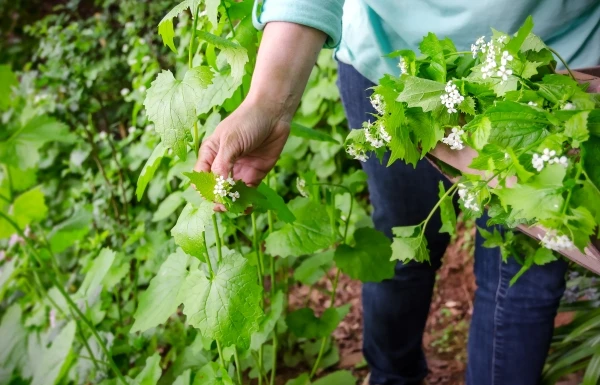
The Grounds Guys highlight invasive plants that can damage gardens.
|
Last Updated April 27, 2023
When it comes to deciding on plants for your garden, there are many beautiful ones to choose from. But just because a plant is beautiful does not mean that it is a good choice. In fact, some of the prettiest plants can be destructive, invading your garden or even attracting unwanted pests. What is worse, once an invasive plant has overtaken your garden it can be a massive headache to remove it! Save yourself the hassle and, before buying plants for your garden, check this list for common plants to avoid.
Bamboo
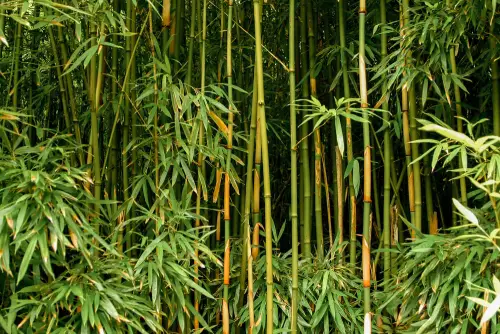
Bamboo is both fast-growing and visually appealing, making it seem like an attractive option for a garden. It is one of the top renewable building materials – for a good reason. Once bamboo takes root, it spreads rapidly and can be hard to contain. Not only will bamboo take over your garden, but it may spread to your neighbor’s property as well – even if you’ve taken pains to install proper edging around your garden. Bamboo is also incredibly difficult to remove, making it one headache you should definitely avoid.
Himalayan and Cutleaf Blackberry
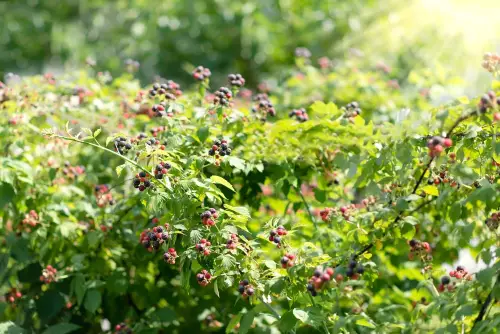
In the right climate, blackberry bushes can be a beautiful way to add edibles to your garden. In fact, growing fruits and vegetables can be a real DIY pleasure. But if you want to grow blackberries, be very careful to choose the right variety. A few to avoid are the Himalayan and Cutleaf varieties of blackberries. Both are incredibly invasive, but also easy to distinguish. What distinguishes these bushes from other, less invasive varieties is their ridged stems with five angles (most other varieties have rounded stems). Once established, these plants can spread and choke out any adjacent plants, as well as grow deep roots that are difficult to remove. So, if you want to grow some tasty edibles, choose a less invasive variety.
English Ivy
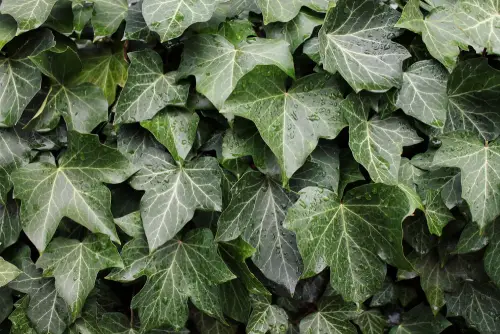
Even if you live in the right climate to grow English ivy, it’s probably best to avoid planting it in your garden. Ivy has a lovely appearance and can climb to cover walls, fences, and even the entire exterior of a house. But that ability to climb and grow quickly can also strangle trees, damaged buildings, and roofs, and even grow right through window casings! The berries and leaves are also toxic to both people and animals.
Japanese Barberry
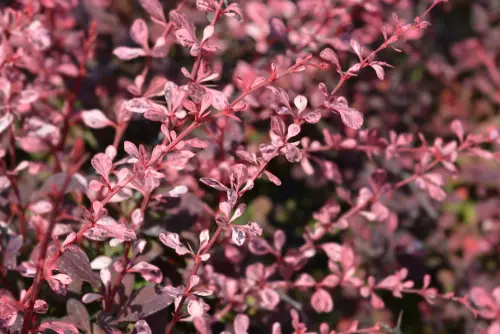
There are many landscapers who seem to love the Japanese barberry. Part of the reason for this is that it can thrive in both dry climates and deep shade, and deer tend to avoid it. It seems like a good way to beautify challenging areas of a garden. But the Japanese barberry is also invasive and covered with sharp thorns, making it painful to handle and trim. It also tends to attract ticks, which can carry Lyme disease. For best results, avoid this one!
Related Topic: How to Arrange Flowers in a Flower Bed
Mint
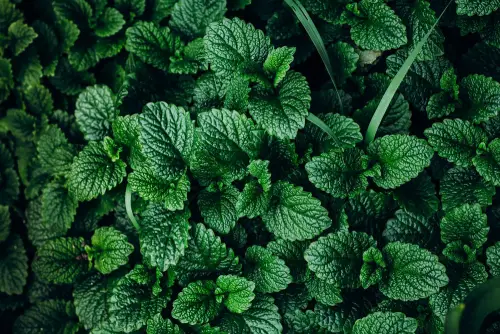
A popular herb that many people include in their gardens is mint. Mint is not only aromatic but it can also be used to flavor food and drink. It grows well in a range of conditions and returns bigger every year. But the roots of the mint plant tend to spread quickly like runners throughout a garden. The roots of this herb can take over your garden and deprive other plants of water and nutrients. While mint may not be a great choice for a garden, it can be grown successfully in a pot or container instead. This way you don’t have to give up on mint, just do it in a controlled environment.
Morning Glory
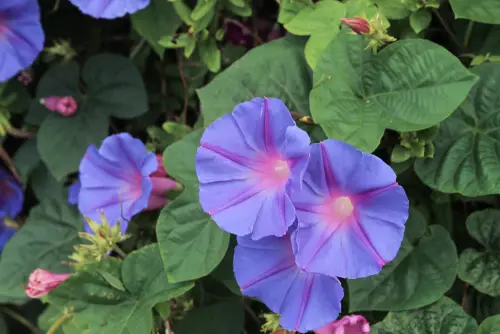
Morning Glory, also known as bindweed, is another climbing plant that can produce pretty, fragrant flowers. But along with those pretty flowers come other issues. Once it is established the Morning Glory grows rapidly and eventually crowds out other plants in your garden and it is almost impossible to remove. Thanks to a stubborn root system, this plant will resist nearly every removal method. Use caution when choosing a pretty, fragrant flower like the Morning Glory.
Rose of Sharon
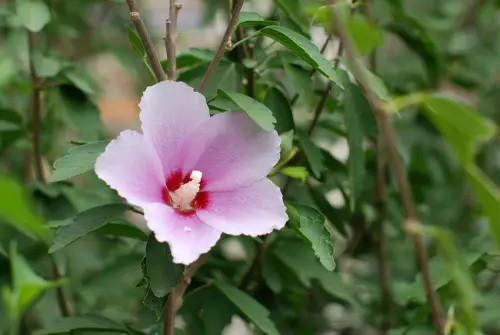
A shrub that produces beautiful flowers in a variety of colors—purple and pink, red and white, blue and pink. But if you looked up the term invasive, you would probably find a photo of the Rose of Sharon. This flowering shrub is covered in beautiful blossoms, requires very little maintenance, and can thrive even in poor soil. But that tenacity comes at a cost. Rose of Sharon also spreads rapidly, producing seed pods that float on the wind and, in a very short time, can overtake an entire garden.
Wisteria
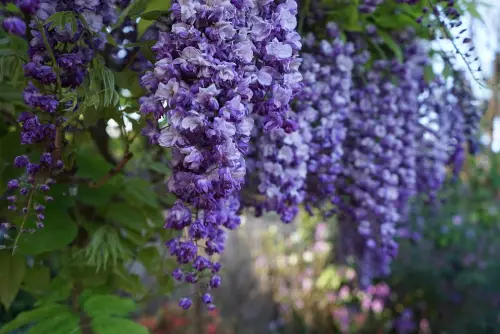
With breathtaking cascades of purple blooms, Wisteria seems like a gorgeous addition to any flower garden. It inspires visions of hummingbirds and butterflies fluttering among the blossoms. Wisteria is long-lived and fast-growing, which makes them easy to grow. But the root system of the Wisteria tree can become a real headache because it tends to send shoots far from the main plant, popping up all over the place and pushing out anything in the way – including other trees. The Wisteria also requires a lot of pruning every year to keep it from getting wildly out of control.
Yucca
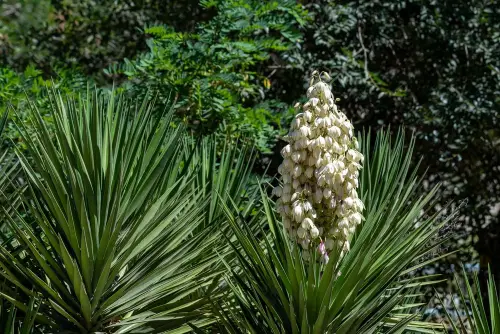
The Yucca plant may seem like a great addition to a garden in hot climates. It is both durable and easy to grow, requiring little water. However, the yucca plant is not a good option for most gardens because it attracts lots of bugs, has sharp leaves that need to be trimmed constantly, and has an invasive root system. To completely remove a yucca plant, you may end up digging up everything around it just to get rid of all the roots. If you still like the idea of a yucca plant, it’s best to grow it in a pot or container instead.
What Should You Plant in Your Garden?
As this list shows, planning a garden isn’t quite as simple as picking out plants that look pretty. There are many factors to consider when creating a garden that you can enjoy year after year. If garden planning feels overwhelming, consider contacting The Grounds Guys for help. We can assist you with choosing the right plants for your garden and climate and help you avoid the ones that can wreak havoc. We offer a full range of residential landscape services.